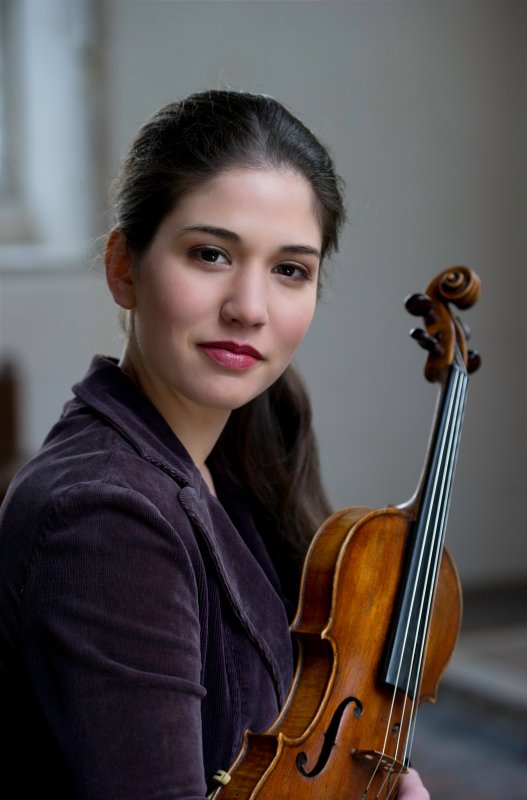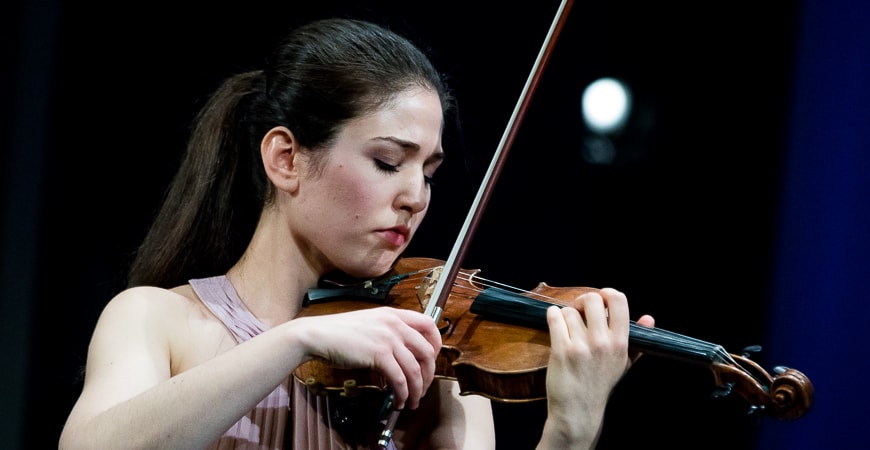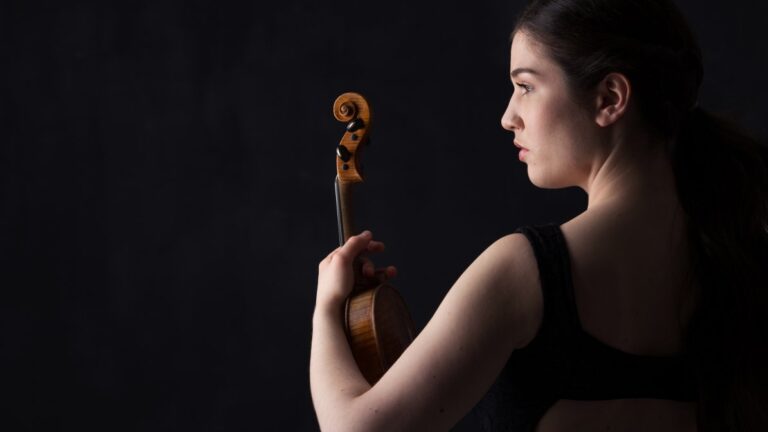Ágnes Langer broke into the Hungarian classical music scene at the Bartók World Competition, then she did not perform for a year due to an unexpected illness. She is now giving concerts again and is looking forward to new challenges. The young musician and I talked about creating a repertoire, her one-year forced hiatus, and perseverance.
– How did you start playing the violin?
– I started playing at the age of six in the music school of Gödöllő, Hungary. My elder sister was playing the piano and I wanted to do the same, but my solfege teacher told me I had the “hands of a violinist” and I should change instruments. It later turned out I was only told this because there was a spot available at the violin course at the time. So I ended up there by coincidence but I immediately fell in love with the violin. Later on, at the age of thirteen, I was already studying in Germany and that’s where I completed university, too.
– What is the “hand of a violinist” like?
– I don’t think there’s such thing (laughs), but perhaps the flexibility of the hand is the most important.
– Who is your favourite composer?
– I really like Bartók, a lot of his pieces have been part of my repertoire since the Bartók World Competition.

– How does a young musician build their repertoire?
– At the beginning, it is necessary to learn the basic pieces, the standards. My teacher thought I was good at playing the compositions I especially liked, so I ended up getting to know and learning the pieces which are essential parts of a basic repertoire these days, for example Tchaikovsky’s Violin Concerto, rather late. However, I had acquired strong technical knowledge by then so it was not too difficult for me to learn them.
– You had great success at the Bartók World Competition but then you disappeared from the musical scene, what happened?
– Yes, I came third at the competition and I took second place at another contest in Italy not very long afterwards, so I ended up having quite a lot of recitals as a result. Then I was in Italy preparing for a concert once when I suddenly felt that something was wrong with my left hand, as if I didn’t have control over it during the rehearsal. I still performed at the following two concerts I had accepted but I knew I had a serious problem with my hand. It took a very long time, almost a whole year, for me to reach my old level. Physiotherapy helped a lot. I was referred to an excellent physiotherapist who I still enjoy seeing today and they helped me tremendously.
– And did you find out what the problem was with your hand?
– No, I didn’t, and this uncertainty was the worst. It might have been something with my muscles and the connective tissues… I had to work hard every day to be able to deliver on my plans and it was doubtful whether I could ever go back to playing music professionally, but I succeeded in the end.
– Has it crossed your mind to quit your career?
– I felt devastated at times, but I always had faith that I would heal and that this was my path. I believe I have returned like a phoenix but I did need lots of perseverance.

– How can an artist be prepared for a condition like this? There is very little talk about such situations in public…
– I have no idea how it could be done, our teachers never talked about this, it is a rather difficult situation. My colleagues and fellow musicians have provided me with so much support though, especially in being able to deal with the uncertainty and believing in myself. I am my old self again now, and I am absolutely sure I can undertake any tasks, I am again able to play any compositions. I would like to start performing as often as I used to do because there is no greater joy for a musician than being on stage and entertaining their audience.











